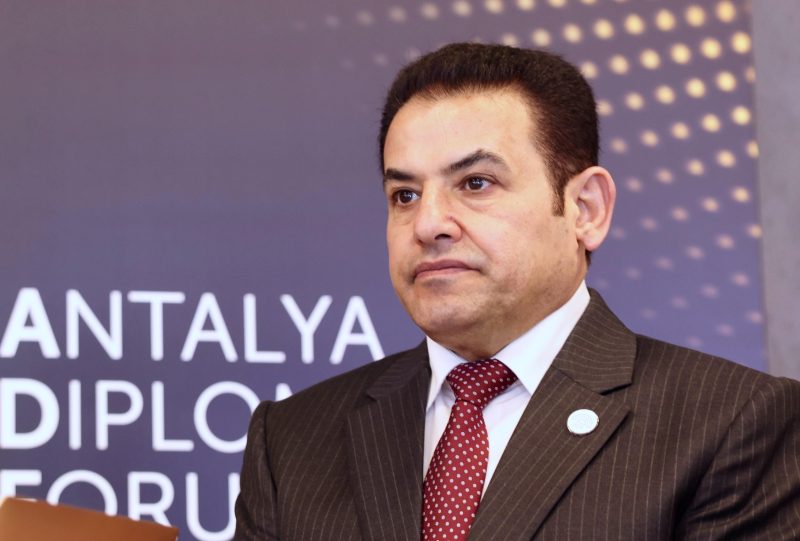Q&A: Qassem al-Araji, Iraq’s National Security Advisor
Iraq's top national security official discusses efforts to navigate U.S.-Iran tensions and reframe security cooperation with members of the counter-IS coalition.
BELEK, ANTALYA - Iraqi National Security Adviser Qassem al-Araji has been at the center of efforts to prevent Iraq from becoming a major theater in a regional conflict stemming from the war in Gaza.
In an interview with Iraq Oil Report on the sidelines of a conference in Turkey, Araji said that Iraq has sent a "message of reassurance" to all sides by starting talks with the U.S.-led coalition to combat the Islamic State (IS) militant group. Araji credited this concrete action toward the potential withdrawal of the coalition with helping to lower tensions between Iran-backed militants and the U.S. military.
“The armed groups — and I have personal relationships with most of them — at the beginning, they didn’t have confidence. They said, we don’t trust that the talks will take place,” Araji said. “So Iraq’s ask [to the coalition] was that the talks start, in order to send a message of reassurance to everyone. So then the bombardments stopped.”
The coalition has been in Iraq since 2014 at the invitation of the Iraqi government to fight IS and at present carries out an “advise and assist” mission, helping the Iraqi security forces to prevent a resurgence of the extremist organization.
Militant groups affiliated with Iran have long demanded the forces’ withdrawal and had resumed a long-running pattern of attacks against Iraqi bases housing U.S. troops since October in what they described as solidarity with Palestinians. They have carried out at least 170 attacks since Oct. 17, according to a coalition spokesperson.
The conflict seemed to be at risk of escalating sharply after a Jan. 28 attack that was launched from Iraq killed three U.S. soldiers stationed at a base in Jordan. The U.S. military responded with retaliatory strikes against Iran-linked targets in Iraq and Syria in early February, including the Feb. 7 drone assassination in Baghdad of Abu Baqer al-Saadi, a senior leader of the paramilitary group Kataib Hezbollah and a commander in Iraq’s al-Hashid al-Shabi (Popular Mobilization) organization, which is a government entity overseeing paramilitary groups.
The violence has declined since then. There needed to be a period of calm, Araji said, “so that everyone can think — and not under fire.”
Al-Araji, one of the most powerful figures in Iraq’s security apparatus, is affiliated with the Iran-aligned Badr Organization but in recent years has taken on a more nationalist role in Iraq. Before serving as national security advisor, he led the Interior Ministry under former Prime Minister Haider al-Abadi.
Over the weekend, Al-Araji met with Turkey’s intelligence chief, Ibrahim Kalin, as the neighboring countries seek closer security cooperation. Combating militants on Iraqi soil from the Kurdistan Workers’ Party (PKK), listed as a terrorist organization by Ankara, Washington and the EU, is consistently among Turkey’s top priorities in its relationship with Iraq.
A full transcript of Iraq Oil Report’s interview with Araji is available below for subscribers.
Login to your account
Subscribe for news access
Annual News subscribers receive access to the full archive of Iraq Oil Report articles.





